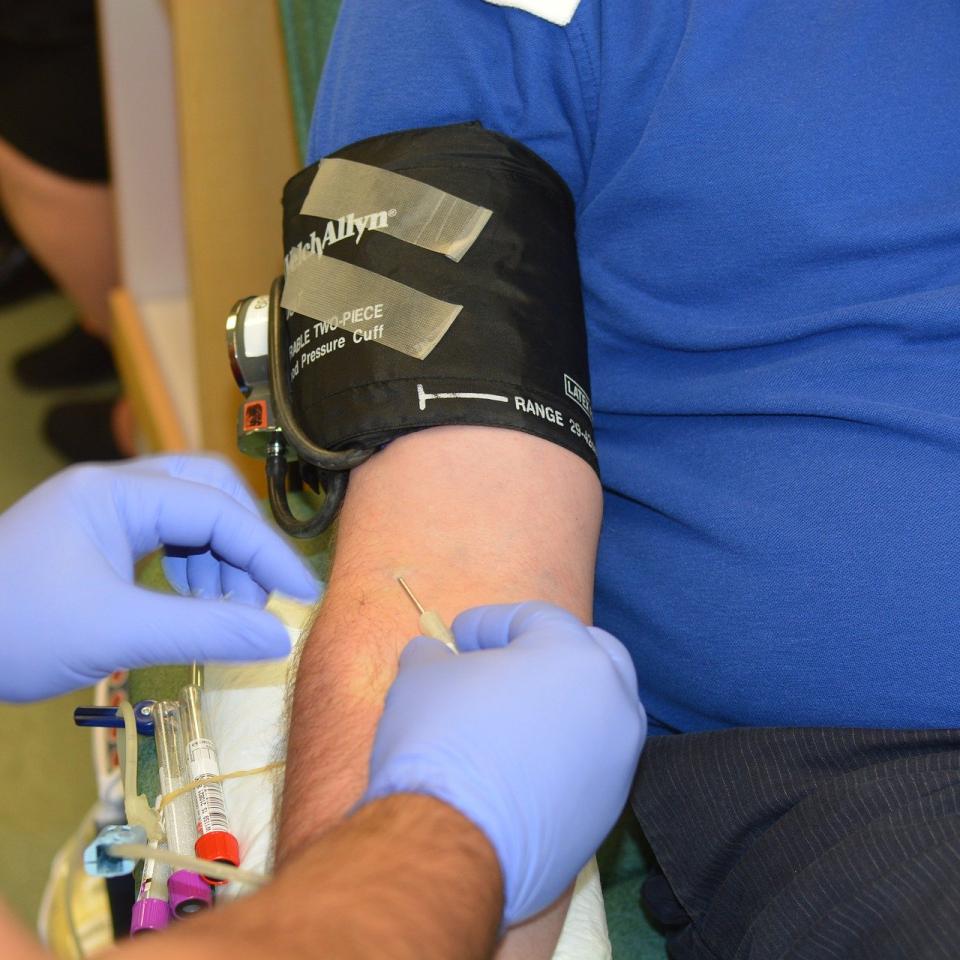
How are universities in Wales helping their local communities during the Covid-19 crisis?
Civic Mission has long been at the heart of the work our Universities do, and during the Covid-19 crisis, Welsh universities have been using their expertise, experience and resources to support the local and national response.
From supporting local health boards with training opportunities, accommodation for key workers and providing vital equipment like masks and aprons, to opening a Blood Centre, providing free parking for NHS workers and offering facilities to blue light services for training courses, our Universities are making fantastic contributions to support the NHS and their local communities and here are some examples:
Medical equipment, facilities, and resources
Cardiff Metropolitan University has established a Blood Centre at its Llandaff campus in partnership with the Welsh Blood Service and loaned two Thermo Fisher 7500 ABI Fast platform machines to support enhanced testing of Covid-19.
Swansea University’s on-campus clinical skills training suite and clinical skills lab at Morriston Hospital have both been freed up for NHS use. In addition, 3D facilities at the University are being used to print ventilator parts, while midwifery and paramedic students are to support frontline NHS colleagues in the fight against the coronavirus pandemic. .
Aberystwyth University and Cardiff University are providing building space to local health boards in order to increase their emergency case handling capacity. Cardiff University is also converting one of its buildings into a training facility for NHS staff.
In consultation with NHS Wales, Cardiff University is fast-tracking final-year medical and healthcare students to be available to support front-line NHS teams, and 300 Year 3 and Year 4 year medical students have signed up for a ‘volunteering bank’ to support the NHS.
Cardiff Metropolitan University, Swansea University, Bangor University and the University of South Wales have all donated Personal Protective Equipment, such as aprons, masks and goggles, for use by frontline NHS staff. Bangor University is also producing hand sanitiser to distribute to the NHS.
Training, research, and expertise
Staff from the allied health courses at Wrexham Glyndŵr University are assisting the NHS in areas such as urgent training in clinical respiratory care. Cardiff University School of Healthcare Sciences is also providing training/skill refresh sessions to staff who are being drafted back into the health service.
Both Swansea University, Bangor University and the University of South Wales are working with university health boards to deliver critical care training to non-critical care staff.
Cardiff University is one of a number of academic institutions supporting a new genome sequencing consortium to map the spread of COVID-19. By looking at the whole virus genome in people who have had confirmed cases of COVID-19, scientists can monitor changes in the virus at a national scale to understand how the virus is spreading and whether different strains are emerging.
Cardiff Metropolitan University and Cardiff University are examining the impact of the epidemic on people in a newly commissioned piece of research for the institutions’ psychology departments.
Training videos have been filmed in the University of South Wales’ Clinical Simulation Centre to demonstrate how to use ventilators and CPAP (Continuous Positive Airway Pressure). These videos will be used to train frontline staff.
At the University of Wales Trinity Saint David’s Assistive Technologies Innovation Centre (ATiC), the Wales Centre for Batch Manufacture are contributing to projects such as the development of a non-invasive ventilation mask, which involves designing new parts and reverse engineering some additional components and creating an emergency pandemic ventilator which can be made locally.
Accommodation and services
Graduate Entry Medicine students at Swansea University are offering emergency childcare for NHS staff which will allow them to continue to offer frontline care.
NHS staff are being offered accommodation at some of Aberystwyth University’s residences, as well as Bangor University, and Wrexham Glyndŵr University has been in contact with the Maelor Hospital about potential short-term accommodation needs for key workers.
Community Support
Wrexham Glyndŵr University has created a free online module called ‘The Confident Learner’ to help students prepare for life at University after missing their last term in school or college.
Bangor University Students’ Union has set up a Facebook support group to help tackle feelings of isolation and loneliness.
A UK-wide promotion of the Open University’s free OpenLearn resources will shortly launch; this will include specific promotions in Wales of bilingual OpenLearn Cymru content. These are free, open educational resources that provide more than 12,000 hours of online study material.
Medical researchers at Cardiff University’s PRIME Centre set up the “When Should I Worry?” website, to provide information for parents about the management of respiratory tract infections (coughs, colds, sore throats, and ear aches) in children. Recently, it helped a mother of a young baby to spot symptoms of coronavirus.
A group of 30 ITE students at Cardiff Metropolitan University have created a free weekly home-school resource programme for parents, and the University’s health and fitness arm Met Active, together with the professional sports team, have been using social media to keep people active with daily videos and home work-out tutorials for all abilities.
Graduate Entry Medicine students from Swansea University are offering emergency childcare for NHS staff which will allow them to continue to offer frontline care. The students are all DBS checked and have paediatric life support skills. A team of eight students are running the scheme alongside more than 90 student volunteers who have offered their time so far. But they say the number involved is growing rapidly as word spreads about the initiative.
